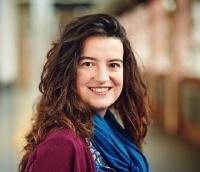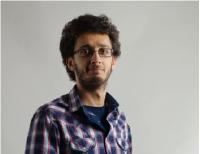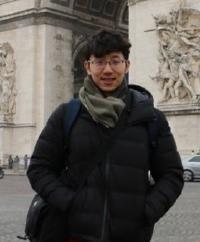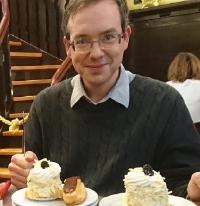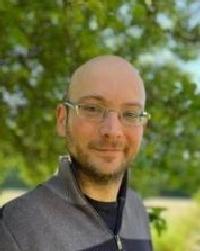You are here :
- EUTOPIA website
- Home
- STUDENTS
- Connected Communities
- ICC
CLARITI: Connected-Community for Learning And Research In Mathematics for Technology and Innovation
Planned education and research activities
The current elective course Seminar in the Mathematics and Data Science will be merging multiple existing teaching and research topics and include new teaching topics, e.g. ‘Introduction to Topology, Analysis and Geometry’, around key concepts such as topological spaces, groups, homology; time-frequency analysis; differential geometry.The different chapters of the seminar will be conducted online and be open to students from all partners of this connected community. A local off-line workshop in all partners will be set up to facilitate active communications in teaching-learning as well as research based on specific chapters of the seminar.
Research-oriented learning will be encouraged. As a Seminar student you will be evaluated based on certain topics instead of exams, presenting your own investigations on the identified topics. New research based topics will include Topological and Geometrical Data Analysis, Analysis for Advanced Machine Learning and Cross Modality Deep Learning.
Joint research opportunities between the partners of the connected community will be pursued, while possible joint theses on PhD, master or bachelor levels will be actively investigated upon.
Connected Community Activities
- Upcoming Activities
-
EU AI Week 2026 - Shaping EU AI Sovereignty - 16 - 22 March 2026
European AI Week (EU AI Week) will explore our ability to develop, master and deploy trustworthy AI solutions, aligned with European values and competitive on a global scale.
Computing the past, connecting the future: artificial intelligence for Europe’s cultural heritage, 17 March, 9:30 to 17:00
Artificial Intelligence is rapidly changing the way we live, work, and interact with the world, including how we preserve, access, and interpret Europe’s cultural heritage. The Royal Library of Belgium (KBR), together with the EUTOPIA CLARITI Connected Community, invites you to join a one-day event dedicated to the role of AI in European cultural heritage institutions. During this event, keynote speakers from European libraries and cultural institutions will share their experiences, challenges, and visions on applying AI to collections, archives, and cultural legacy.
Speaker(s): Jean-Philippe Moreux (Bibliothèque nationale de France), Mia Ridge (British Library)
Hybrid - Royal Library of Belgium (KBR), Brussels
Full programme and registration: see here
The Brussels Geostat Workshop, 13-17 April, VUB Brussels campus
The aim of the workshop is to bring together researchers working at the interface of geometry and statistics to present the latest developments in their fields, with particular emphasis on topological and geometric machine learning, directional statistics, and spectral methods for data analysis. Applications to image processing will also be discussed.
Full programme and registration: see here - Past Activities
-
Seminar on AI, NLP, and Text Analysis (3 & 4 February 2025)
CC Clariti is thrilled to announce a two-day seminar series that will delve into the world of text analysis, artificial intelligence (AI), and natural language processing (NLP).
Speaker: Prof. Horacio Saggion PhD., MSc., Lic. in Computer Science Chair in Computer Science and Artificial Intelligence and Head of the TALN Group and Large Scale Text Understanding Systems Lab at the Department of Information and Communication Technologies, Universitat Pompeu Fabra.
Seminar 1: What Can We (Still) Do with Texts? - The TALN Research Group Perspective
❖ Timing: 11:00 AM - 12:00 PM, Monday 3rd February 2025.
❖ Location: event Hall (on Entrance floor), U-Residence (VUB Campus), Blvd Géneral Jacques 271, 1050 Ixelles.
❖ Online options: the seminar can also be attended online (links will be shared per registration).Join the TALN Research Group as Prof. Saggion shares perspectives on the evolving possibilities of text analysis. This seminar aims to promote discussions on topics such as combating misinformation, mining scientific texts for deeper insights, and translation of sign language.
Seminar 2: AI and NLP in Democracy - The iDEM Project
❖ Timing: 12:00 PM - 1:00 PM, Tuesday 4th February 2025
❖ Location: event Hall (on Entrance floor), U-Residence (VUB Campus), Blvd Géneral Jacques 271, 1050 Ixelles.
❖ Online options: the seminar can also be attended online (links will be shared per registration)How are AI and NLP relevant to democracy? The iDEM Project sets an example on investigating the role of AI in promoting accessible communication, with specific considerations, for example, on text simplification for civic engagement. This talk will shed light on the relevance of using technology to foster inclusivity and transparency in democratic processes.
Inaugural Lecture Francqui Chair 2023-2024 by Stéphane Jaffard - 28 March 2024Students and researchers were invited by the VUB Department of Mathematics and Data Science to attend the Inaugural Lecture of the Francqui Chair 2023-2024, awarded to Prof. Stéphane Jaffard from the Paris East Créteil University (UPEC). Some 40 participants attended the lecture 'Detection and characterization of the singularities of functions', which was intended for a broad audience interested in mathematics and its applications. Prof. Jaffard explained how techniques from harmonic analysis may be used to obtain results about the oscillating singular behavior of functions and signals. Furhtermore, he presented various real-world applications in which such results play an essential role, including the detection of gravitational waves, the modelling of turbulence, and the analysis of brain data.
Mini-course Time-scale and time-frequency methods in the study of singularities of functions - 16-19 April 2024The mini-course was given by Prof. Stéphane Jaffard at the Department of Mathematics and Data Science at the VUB from 16-19 April 2024. It consisted of four lectures and was intended for Master students, Ph.D. students, and researchers interested in harmonic analysis.
How to get involved?
(Students and educators)Contact Prof. Ann Dooms (ann.dooms@vub.be), Prof. Kenny De Commer (kenny.de.commer@vub.be) or Els Decoster, Local Facilitator (els.decoster@vub.be)
Connected Community Members
- Lead: Ann Dooms (VUB). Email: ann.dooms@vub.be
-
Prof. Dr. Ann Dooms (PhD in Mathematics, 2004) leads the research group Digital Mathematics (DIMA) of the Department of Mathematics and Data Science, which focuses on discrete and continuous techniques for Data Science (WIDS), where Ann is specialised in information forensics and security. She has a long-standing expertise in pattern recognition with applications in image processing for digital painting and document analysis and post-quantum cryptography. She was elected member of the ‘Jonge Academie’ and the IEEE Technical Committee in Information Forensics and Security. Ann is associate editor of the Elsevier Journal of Information Security & Applications (JISA) and member of the scientific board of Belgian Defence. She won several prizes for education, research, science communication and valorisation.
- Partner: Kenny De Commer (VUB). Email: Kenny.De.Commer@vub.be
-
Prof. Kenny De Commer received his PhD in Mathematics at KU Leuven, as an FWO aspirant, with the thesis `Galois coactions for algebraic and locally compact quantum groups' (advisor A. Van Daele). He then had a postdoctoral position 2009-2011 under the ERC-advanced grant (supported guidance of R. Longo at the Università di Tor Vergata, Rome, Italy). From 2011-2013, he was a Lecturer at the Université de Cergy-Pontoise, France. From 2014-2019, he was appointed tenure track research professor at the Vrije Universiteit Brussel, and as of February 2019 has been associate professor at VUB. In the period 2020-2023, he acted as the head of the department of mathematics and data science (WIDS) of VUB. His research interests are in representation theory in the analytic setting, and more particularly its connections to operator algebras, quantum groups and category theory.
- Partner: David Tewodrose (VUB). Email: David.Tewodrose@vub.be
-
As from October 1st 2023 David Tewodrose is a tenure track professor in the Department of Mathematics and Data Science of the Vrije Universiteit Brussel (Belgium). Between September 2021 and September 2023, he was a postdoctoral researcher at Laboratoire de Mathématiques Jean Leray from Nantes Université and worked under the supervision of Gilles Carron. His research field was geometric analysis. Between October 2020 and September 2021, he was a postdoctoral researcher at Université Libre de Bruxelles, under the supervision of Bruno Premoselli. From September 2018 to September 2020, he was assistant professor at CY Cergy Paris University. From November 2015 to August 2018, he was a PhD candidate in fundamental mathematics at Scuola Normale Superiore di Pisa, in the framework of a joint supervision with Ecole Normale Supérieure de Paris. His advisors were L. Ambrosio in Pisa and T. Coulhon in Paris.
- Partner: Tan Lu (VUB). Email: Tan.lu@vub.be
-
Tan Lu is an assistant professor in the research group of Digital Mathematics (DIMA), department of mathematics and data science (WIDS), VUB. He obtained his Bachelor and Master’s degrees in Electronic Information Engineering, both from University of Electronic Science and Technology of China (UESTC). He has previously worked as a visiting lecturer in Singapore, before obtaining his PhD in the department of mathematics and data science in VUB in 2020. He is currently leading the KBR data science lab, which is established based on a collaboration between VUB and the royal library of Belgium.
- Partner: Jan De Beule (VUB). Email: Jan.De.Beule@vub.be
-
Jan De Beule (PhD in Mathematics, 2004) is an assistant professor in the research group of Digital Mathematics (DIMA), department of mathematics and data science (WIDS), VUB. His field of research is discrete mathematics, with applications in data science. He is specialised in finite geometry, graph theory, and coding theory. Furthermore, he is also interested in computational exploration of combinatorial structures.
- Partner: Horacio Saggion (UPF). Email: horacio.saggion@upf.edu
-
Horacio Saggion is the Chair Professor in Computer Science and Artificial Intelligence, and Head of the Large Scale Text Understanding Systems Lab in the TALN Group at the Department of Information and Communication Technologies, Universitat Pompeu Fabra. His main research interest is Computational Linguistics. He works in the areas of Text Summarization, Information Extraction and Semantic Analysis. He was involved in research and development with the GATE platform from the year 2000. He is the creator of the SUMMA Summarization system and was the principal investigator of the projects Simplext and Able to Include which resulted in multilingual text simplification technology.
- Partner: Louis Ioos (CY). Email: louis.ioos@cyu.fr
-
Louis Ioos is a tenure track professor at CY Cergy University, in the Paris area. The themes of his research are differential geometry and global analysis. Specifically, he is interested in geometric quantization and the study of the Bergman kernel from the point of view of local index theory, as well as in applications to complex and symplectic geometry.



